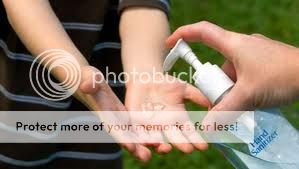Skip the Triclosan and Other Antibacterial Products
 By Alexandra Zissu, Editorial Director
By Alexandra Zissu, Editorial Director
America
is in the midst of a serious antibacterial craze. From soap and
toothpaste to playing cards and kitchenware, it’s a challenge to find a
product that isn’t currently available in an antibacterial version. The
majority of these products rely on an antibacterial agent called
triclosan to make them hyper-hygienic.Though it may seem wise to abolish germs at every turn, according to experts, surrounding your family with antibacterial everything is not actually a good idea. For one thing, living in an ultra-sanitized environment may ironically be quite unhealthy. A theory called the Hygiene Hypothesis says that when our bodies cease encountering a lot of bacteria and viruses in daily life, our immune systems stop getting the workout they need to stay in proper shape. When that happens we face an increased risk of allergies, asthma, and other illnesses.
There’s also the issue of triclosan itself. Exposure to this synthetic pesticide, which is currently found in the urine of 75 percent of all people tested, has been linked to cancer, hormone disruption, liver damage, and other health problems. Triclosan is also a serious pollutant that breaks down in the environment into extremely toxic chemicals including a form of dioxin and carcinogenic chloroform. And there’s evidence it may be contributing to the creation of new antibiotic-resistant “super germs.”
Clearly triclosan is not a pesticide we want in our homes, around our children, or in our bodies. It’s also not one anyone needs in order to practice good hygiene. Studies have shown that simple handwashing with ordinary soap is just as effective at removing bacteria as using an antibacterial soap. Many groups, including the American Medical Association and Physicians for Social Responsibility, have come out against the use of triclosan.
To keep triclosan out of your home, avoid the use of anything labeled antibacterial. Read claims on everything from socks to personal care products to toddler training potties to cleaning products. Skip any that contain triclosan or claim that they are antibacterial or odor fighting.
Still concerned about germs? Teach your kids to frequently and properly wash their hands. After soaping up with warm water, they should rub enthusiastically for 20 seconds, paying attention to their fingernails, wrists, and spaces between fingers. That will keep them healthier at school, day care, and other places where germs congregate. One study found that frequent handwashing results in 45 percent fewer cases of respiratory ailments, no pesticide needed.
Article courtesy of healthychild.org
